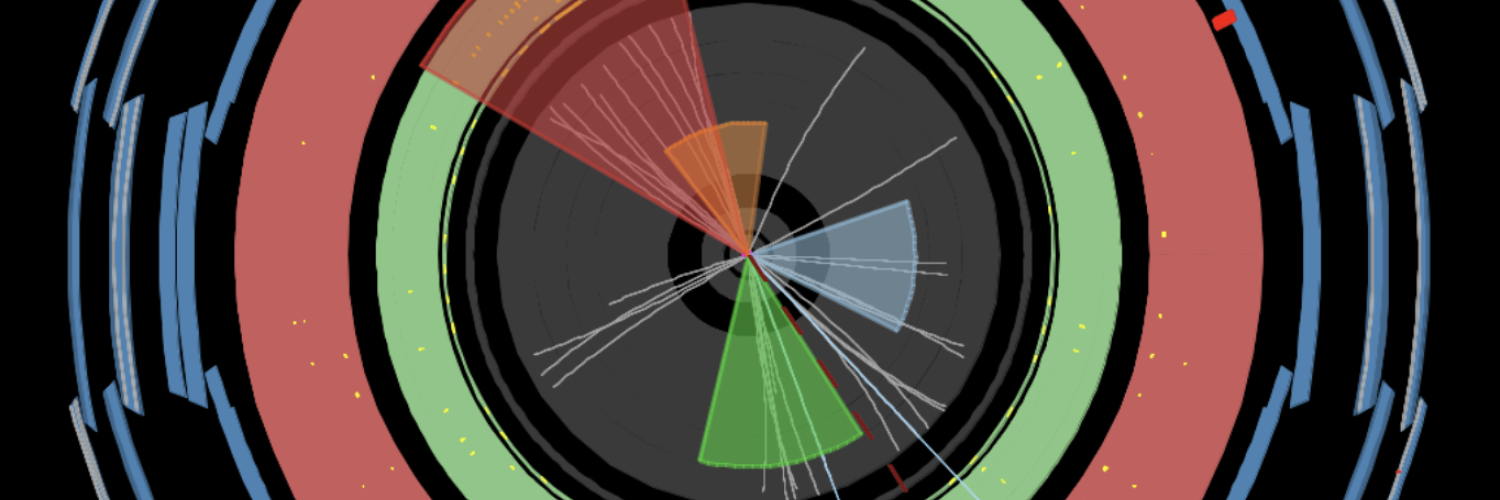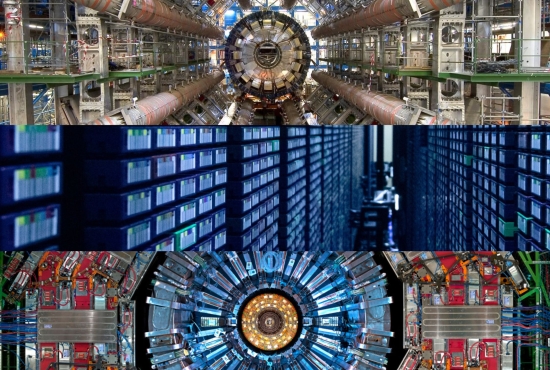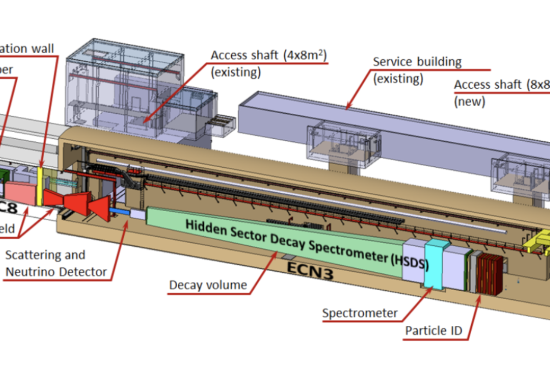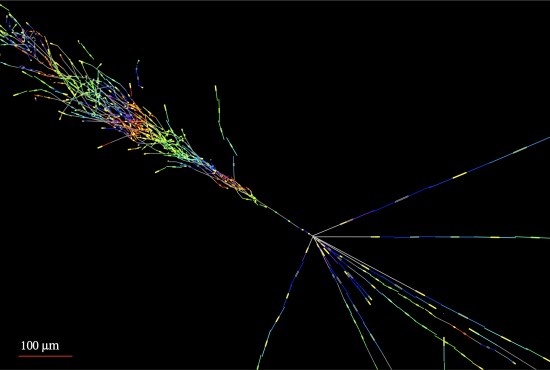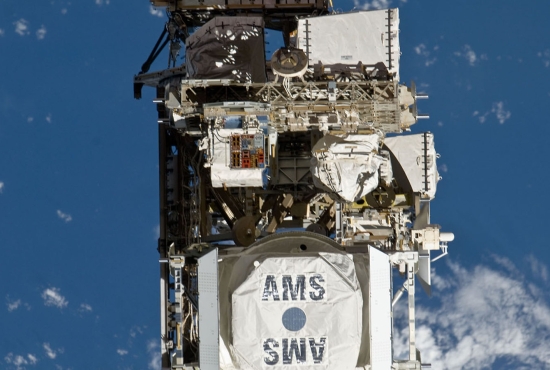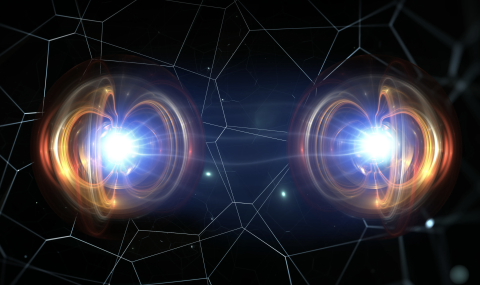A word from the EP Department Head - June 2024
Dear Colleagues in EP,
With great pleasure, I would like to invite you to read this edition of the EP newsletter...
READ MORE
Interviews & Features
In-Depth Conversation with John Preskill
In this exclusive interview, we sit down with John Preskill (Richard P. Feynman Professor of Theoretical Physics at CALTECH), a pioneering physicist and leading expert in quantum computing.
Read MOREExploration with LHCb: from unseen to rare
Enhanced by a newly upgraded detector, LHCb continues to push the boundaries of flavor physics, promising further significant discoveries.
Read MORENextGen Triggers: Pioneering R&D for HL-HC Data Acquisition and Event Processing
The NextGen Triggers project aims to advance R&D on innovative data acquisition, online computing technologies, and machine learning approaches for the ATLAS and CMS experiments thus maximizing their potential.
Read MOREEdge SpAIce: Leveraging CERN's AI for Real-Time Ocean Plastic Tracking from Space
The Edge SpAIce project applies CERN's AI technology to monitor Earth's ecosystems from space, tracking ocean plastic pollution.
Read MORELooking in all directions for long-lived particles at the LHC
Driven by the hunt to unravel new physics, several small projects emerged within the Physics Beyond Colliders Initiative, complementing ongoing searches at the LHC and maximising the physics output. Some of them are already taking data, while others being in earlier stages are eagerly waiting to start.
Read MORESHiP Experiment: Charting New Territory in Particle Physics
CERN's SHiP (Search for Hidden Particles) experiment, starting in 2031, aims to explore hidden sectors beyond the Standard Model to address mysteries like dark matter and neutrino masses.
Read MOREResults from the experiments
Studying FIPs with FASER - recent news
FASERν's high-resolution emulsion detector effectively analyzes high-energy neutrino interactions from LHC collisions, focusing on charged-current events and managing background from neutral hadrons.
Read MOREITS3 and FoCal: Two new subdetectors to extend ALICE’s physics reach
CERN's dedicated heavy-ion physics experiment, ALICE, is enhancing its capabilities with an upgraded Inner Tracking System and the addition of a forward calorimeter in preparation for the next phase of the LHC upgrade.
Read MOREHighlights from the Alpha Magnetic Spectrometer on the International Space Station
Recent findings have shed light on the Sun's enigmatic charge-sign effect, the mysterious nature of cosmic deuterons, and unveiled a revolutionary detector upgrade that's pushing the boundaries of space exploration.
Read MOREProbing Anomalies: CMS experiment investigates possible hints of new physics
CMS collaborations is investigating intriguing excesses in their Run 2 and Run 3 data. Further analysis and upcoming data from Run3 could provide clarity on these potential signals.
Read MOREDiscover how CERN's innovative cryostat technology is advancing neutrino physics
Two cryostats, prepared and ready for shipment to the Sanford Underground Research Facility, will soon help explore the mysteries of the strong force, with assembly beginning in July 2025.
Read MOREA high-dimensional jet-powered measurement of the strong force
ATLAS has released a groundbreaking machine learning-enabled measurement of 24 properties of high-momentum Z boson events. This innovative dataset, accessible via Jupyter notebooks, offers new precision for exploring the strong force.
Read MOREMoEDAL-MAPP Experiment’s Quest for Anomalously Charged Avatars of New Physics
Exploring the groundbreaking search for new physics beyond the Standard Model with the MoEDAL-MAPP experiment at the LHC.
Read MORESpecial Features
ATLAS Open Data: Ushering in Transparency and Collaboration in Particle Physics Research
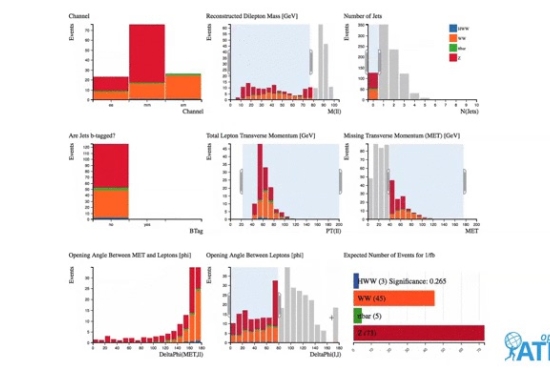
ATLAS Collaboration at CERN is furthering scientific transparency and collaboration through its Open Data Initiative.
Read MOREUnlocking New Possibilities: LHCb's Latest Open Data Releases

The LHCb collaboration at CERN has made its extensive Run I and II datasets publicly available, offering researchers and educators unprecedented access to data on particle interactions.
Read MORECMS Releases Extensive 13 TeV Collision Data for Open Science

The CMS experiment at CERN has unveiled a treasure trove of scientific data, releasing 13 TeV proton-proton collision data from previous runs. Join the global community in exploring the frontiers of our universe.
Read MOREGroundbreaking Observation of Quantum Entanglement in Top Quarks at the LHC
Researchers using the ATLAS and CMS detectors at CERN's LHC observe quantum entanglement in top quark pairs thus opening new avenues for exploring complex quantum phenomena.
Read more


